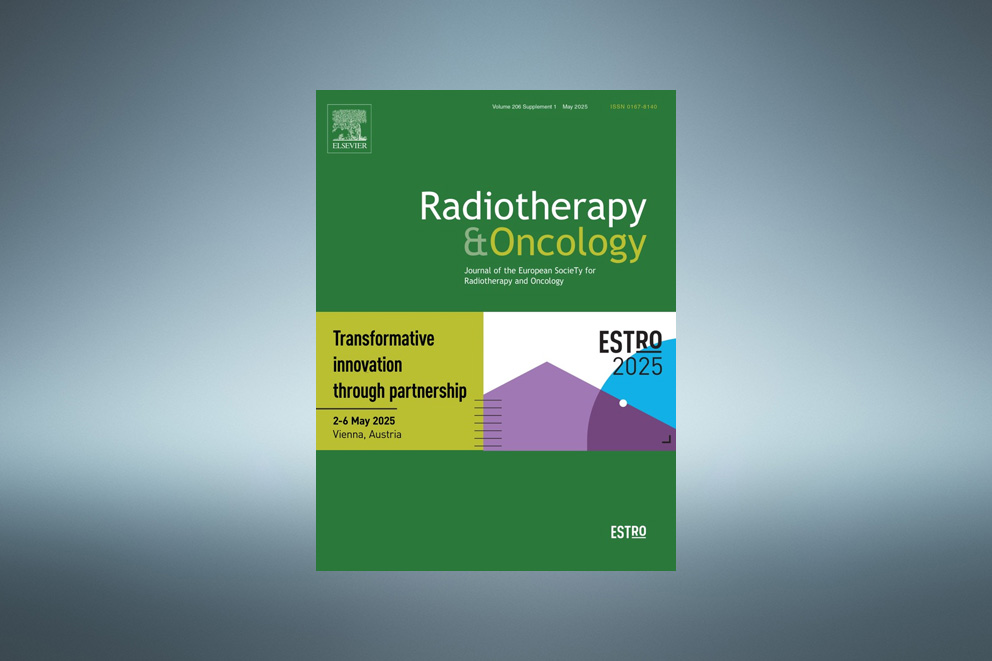A fast Monte Carlo Algorithm optimized for dose monitoring in adaptive radiotherapy
“This work evaluates accuracy and calculation time for a novel fast Monte Marlo (fMC) based calculation engine for an SGRT system in LUNA 3D (LAP). The new fMC demonstrates performance, both calculation speed and dose accuracy, required to enable the next generation of adaptive treatment strategies.”
Authors:
Bulent Aydogan (1), Erik Pearson (1), Carlos Bohorquez (2), Christopher Stepaniak (1), Jay Markham (2), Melissa Cross (2), Drew Bullock (2)
1 Radiation and Cellular Oncology, University of Chicago, Chicago, USA.
2 Physics, LAP of America Laser Applications, L.L.C.,, Boynton Bay, USA
Source: Digital Poster #4615 in ESTRO 2025 Abstract Book (https://user-swndwmf.cld.bz/ESTRO-2025-Abstract-Book/2720/)
Purpose/ Objective:
The next frontier in precision radiation therapy is online adaptive treatment. Monitoring and correcting for changes in the patient anatomy and/or motion occurring between simulation and beam-on for each fraction is one of the most significant remaining challenges in radiation therapy. One promising approach is surface guided radiation therapy (SGRT), i.e., multiple stereoscopic cameras for accurate real-time modeling of the patient surface, which can be used to model internal changes. A critical component for the success of SGRT is fast and precise dose calculation to provide the information needed for clinical decision support at the treatment console. This work evaluates accuracy and calculation time for a novel fast Monte Marlo (fMC) based calculation engine for an SGRT system in LUNA 3D (LAP).
Material/ Methods:
From open-access data sets, five non-small cell lung cancer [1] and five prostate [2] cases were replanned in RayStation (RaySearch Laboratories) with Monte Carlo. Lung plans were for 60Gy in 5 fractions according to NRG LU0084. Prostate plans were two-arc VMAT SBRT with ℞ of 36.25 Gy over 5 fractions, following SPARK trial guidelines3. Dose distributions were recomputed using Eclipse Acuros (Varian Medical Systems) and RadCalc’s (LAP) BEAMnrc implementation and the fMC algorithm. The RadCalc BEAMnrc implementation is a CPU based statistical particle transport where the new fMC utilizes precomputed EGSnrc tracks and GPU acceleration. In RadCalc prostate plan computations were performed using the standard uncertainty level (~4.5%) and the low level (~2.5%) was used for the lung plans, defined at the 50% Dmax level.
Resulting dose volumes were compared using gamma analysis criteria of 3% max dose and 2mm DTA, within external contour and ignoring values less than 10% of the ℞ dose. Additionally, seven pints are automatically added to the PTV for absolute dose comparison to elucidate dose discrepancies not captured in a gamma analysis. Line profiles of dose and corresponding gamma are also evaluated. It demonstrates the dose comparison between RadCalc BEAMnrc and fMC dose computations for one of the lung patients traversing bone, lung and soft tissue in high and low dose areas.
Results:
Calculation speeds in the new fMC implementation in RadCalc (v7.4) are significantly improved, comparable to RayStation Monte Carlo, without compromising the dosimetric accuracy as compared between the four algorithms evaluated.
Conclusion: The new fMC demonstrates performance, both calculation speed and dose accuracy, required to enable the next generation of adaptive treatment strategies.
References:
1. Wee, L., Aerts, H. J.L., Kalendralis, P., & Dekker, A. (2019). Data from NSCLC-Radiomics-Interobserver1 [Data set]. The Cancer Imaging Archive. https://doi.org/10.7937/tcia.2019.cwvlpd26.
2. Keall, P. et al. Real-Time Image Guided Ablative Prostate Cancer Radiation Therapy: Results From the TROG 15.01 SPARK Trial. Int J Radiat Oncol Biol Phys 107, 530–538 (2020).
3. Keall, P. et al. Stereotactic prostate adaptive radiotherapy utilising kilovoltage intrafraction monitoring: the TROG 15.01 SPARK trial. BMC Cancer 17, 180 (2017).
4. Heinzerling, et al. Full Dose SBRT in Combination With Mediastinal Chemoradiation for Locally Advanced, NonSmall Cell Lung Cancer: LU-008 Trial. Pract Radiat Oncol 13, 531–539 (2023).

